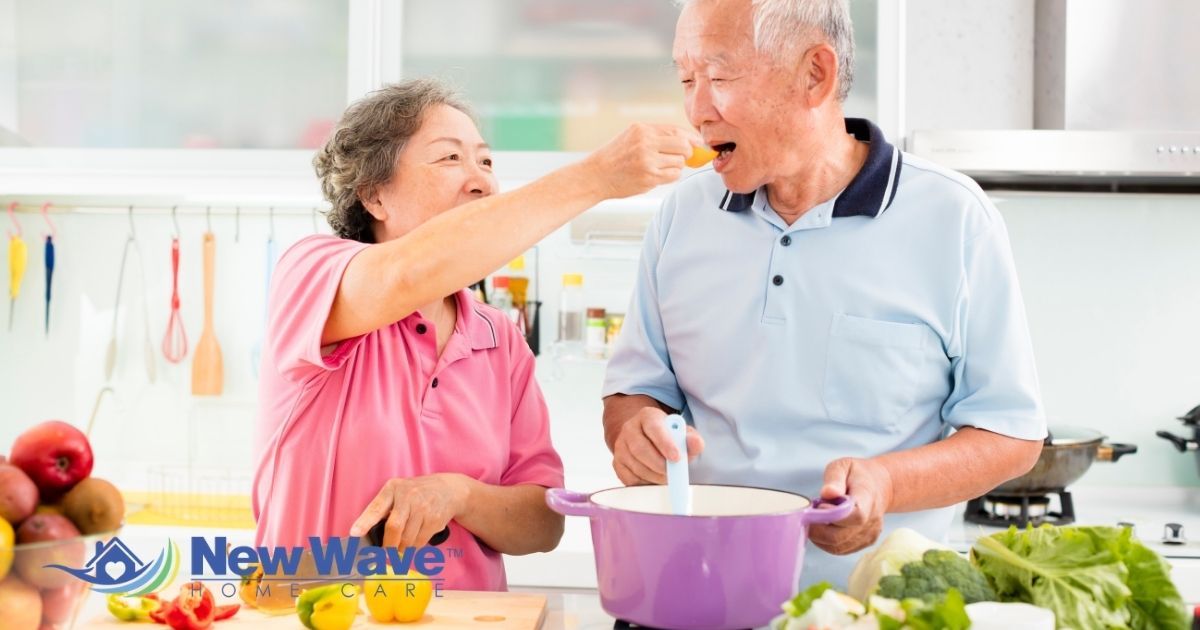For various reasons, the diets of many older adults lack the essential nutrients their body needs to perform optimally. WebMD points out that over 50% of all Americans aged 65+ seen in emergency departments every year are either malnourished or at risk for malnutrition.
Many aging-in-place seniors with malnutrition run the risk of losing their independence for good. If there’s an elderly loved one in your life who may be malnourished here’s how to identify the warning signs, along with ways that you can help.
Health Problems Linked to Malnutrition
Malnutrition is caused by either eating too little food or by eating too many foods that lack essential nutrients. Older adults who become malnourished typically do so because of social, physical, or psychological reasons- or a combination thereof.
Once an aging adult becomes malnourished, they are more likely to develop these health problems:
- Weakened immune system, which increases the risk for infections
- Delayed wound healing
- Muscle weakness and reduced bone density, which make falls and fracture more likely
- Memory loss and cognitive impairment
- Increased risk for hospitalizations and even death
Nutritional deficiencies are oftentimes harder to diagnose in the elderly because they mimic the signs of other medical problems commonly found in the aging population.
Malnutrition Symptoms in Seniors
The symptoms of malnutrition depend on the type. When your loved one’s diet is nutrient deficient (undernutrition), they may experience signs like:
- Weight loss
- Fatigue
- Depression and anxiety
- Muscle loss
- A swollen stomach
- Difficulty concentrating
- Hollow cheeks and sunken eyes
- Dry skin and hair
- Delayed wound healing
Some of the most common nutrient deficiencies include zinc, iron, Vitamin A, and Iodine. When malnutrition is due to eating too many foods that lack essential nutrients (overnutrition), it usually causes a person to be overweight or obese. In many cases highly processed and fast foods high in calories and fat- but deficient in essential nutrients- are at the root of the problem.
How to Keep a Senior Well Nourished
Fortunately, as an informal caregiver, there are several ways to keep an aging loved one well-nourished so that they can enjoy a higher quality of life.
Monitor their weight
First, use a weekly log to monitor your senior’s weight. Look for warning signs of weight loss, like loose-fitting clothing or a gaunt, frail appearance. If you live far away ask someone else to check on your loved one, like a family member, neighbor, or friend.
Check the kitchen
While in their home peek inside the fridge and kitchen pantry. Don’t hesitate to ask questions about their diet, and volunteer to take them to the grocery store, or to have groceries delivered right to their door.
Try to convince them to replace processed foods with fresh fruits and veggies, poultry, lean meats, fresh fish, and fiber-rich whole grains. If you can’t prepare nutritious meals for them, look into a meal delivery service with senior-friendly food choices.
Encourage exercise
Regular exercise benefits seniors in so many ways, including the fact it stimulates a healthy appetite. Encourage your loved one to participate in low-impact forms of exercise like walking, yoga, water aerobics, or swimming for at least 20 minutes 3 to 5X per week.
Schedule a dental exam
Chewing discomfort keeps far too many seniors from eating as they should. If that’s the case, take your loved one to the dentist so they can get a complete checkup. Sometimes a tooth extraction, new filling, or set of dentures is all it takes to ensure that a senior takes in the nutrient-rich foods their body needs.
In-Home Dietary Assistance for Seniors in Pasadena
Helping seniors avoid malnutrition isn’t always easy if you’re busy or live far away. When you need some in-home dietary assistance contact New Wave Home Care. As a fully licensed home care provider, our experienced professionals can assist your senior with all their meal planning, food shopping, and cooking needs. While serving as an extended family in the home, our highly skilled caregivers use a unique approach that’s all about compassion and connection, delivered with an added personal touch that allows our clients to experience a degree of joy.
In addition to meal assistance, we support clients and their families with personalized in-home solutions like respite care, transitional care, personal care, specialized care, medication reminders, dementia and Alzheimer’s care, and hospice support. At New Wave Home Care, it’s not just about caregiving. It’s about heart!
To schedule a FREE assessment for a senior in Pasadena, CA now visit www.newwavehomecare.com.



